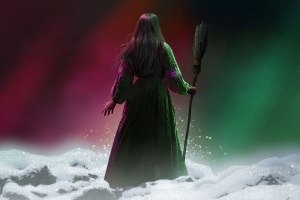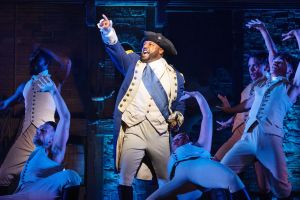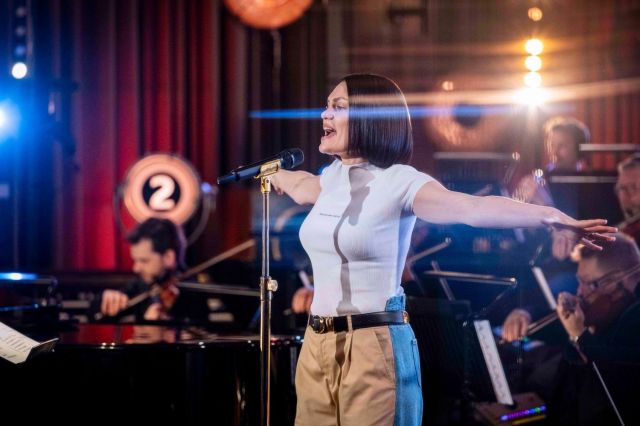Brief Encouter With … Noah Birksted-Breen
Raise a shot of vodka to the first Russian Theatre
Festival, which opens at Soho Theatre tonight. The four day event will showcase
new work from some of the most exciting young writers on the Bloc (so to speak),
from Vladimir Zuev’s testimony-based play about Chechnya to the latest piece
from Natalysa Kolyada, whose Belarussian company Free Theatre boasts
Tom Stoppard as a patron.
Behind the event is Sputnik, the only UK theatre company exclusively
producing Russian work. Its three
previous productions at the Old Red Lion have all made Time Out Critic’s Choice
and artistic director Noah Birksted-Breen is regularly included on
ones-to-watch lists. He joins us over a plate of blinis to tell us more about this
latest venture.
So, London’s
first Russian Theatre Festival. Sputnik has definitely grown in stature since
we last talked, Noah.
Yes. Someone the other day pointed out to me that we make
the same amount of Russian work as the Royal Court and the RSC, which was
great. It never feels that way as the resources we’ve got are so much smaller. But
my aim is definitely to make us into a company which is always on the radar.
How did Sputnik
and Soho Theatre come together?
Lisa Goldman artistic director at Soho has come to at
least two of the productions we’ve done and we got chatting. We seemed a
natural fit to Soho, which is known not just for new but international writing
but we wanted something more than a festival, showing the full range of what’s
going on in Russian theatre. I think with each of the three productions I’ve
done in the past, I’ve consciously chosen a play that represents something very
new coming out of Russia, something different to the previous production. And
in the four plays here, the subject, genre and form are all very different.
How did
you go about choosing which plays to include?
If often comes when I’m out in Russia seeing work and
talking to people. I read a bunch of things, too. Natalysa Kolyada’s Dreams
(1 Feb) is something I’ve wanted to do for a while. I met Natasha two or three
years ago and was very aware of her company, Free Theatre. Then there’s Tityus The Irreproachable (2 Feb). Maksim
Kurochkin is the most famous young playwright currently working in Russia but
he’s never been done here. This play is about the information society,
political control and the cult of loyalty. He even has flying CCTV cameras.
It sounds
scarily relevant to the UK.
Yes, it’s both foreign and completely something we can understand.
I love that kind of that play. Then, Vladimir Zuev’s Mums
(3 Feb)
was a play someone recommended to me in Ekaterinburg. It tackles Chechnya, which is still a big taboo in
Russia, but combines real testimony from all these mums he met with this magic
realist element. And Natasha’s Dreams
(4 Feb) is the most accessible of them all – I’ve called it a dark rom-com. It’s
by Yaroslava Pulinovich, who also had a reading during the RSC’s Russian
season.
War,
state control, terrorism, suicide though. That’s a dark set of themes.
There’s a lot of humour in there, too. But they are definitely
addressing some really big and serious themes in response to what’s going on in
Russia at the moment. The situation is superficially fine. There’s lots of
money around. But journalists are still being shot in the streets and no one is
being held accountable. It’s tragic.
What
first sparked your interest in Russia?
My great-grandparents came from the region. They were
Russian Jews, who emigrated around the time of the pogroms and came back to
Europe in 1910. I never knew them directly but I’ve always felt my personal
history tied in with them. So it was partly that and then when I was 14 or 15
and started reading Dostoevsky, I was
absolutely blown away by this world and wanted to find out more. I did Russian
GSCE, A-Level, then took it onto university and ended up living in Russia for a
year.
How would
you define the modern Russian sensibility?
They are a culture and a people who are still searching –
the society has gone through all these tumultuous things and yet the fact is they’ve never had a democracy, only nominally for the
last 15 years. These issues are urgent and Russians are passionate about them.
You’ve
translated all four plays in the festival yourself – how much of a challenge
was that?
It’s been the biggest challenge to date – to make sure
each one is different while being aware of and true to each author’s voice. The
plays changed a lot in rehearsals. I’m picking actors who I think really understand
their roles and it’s a two-way process. A script shouldn’t be a static object.
The most
visible Russians here in London are multi-millionaires like Roman Abramovich
and Alexander Lebedev. Are you painting a truer portrait?
There is so much more to Russia than we know. We think of
either the rich oligarchs or the poverty. I hope that every play I do brings a
new perspective. I am definitely choosing
the more political plays for this festival. There’s also going to be a photography
exhibition, literature made available and some post-show discussions and
sessions. I hope I’m bringing Russia to London for a week and that people come
away knowing more.
Does
being touted as one to watch bring unwanted pressure or help get things done?
It’s mainly helpful. It does put the pressure on but all publicity
is good. More interest in the company makes it easier to get funding. It
was such a big deal getting an Arts Council grant for this festival – immediately
we knew we could do more work. I would love it to become an annual event and there
are already plans in the pipeline for the next one. The aim is to invite over a
Russian theatre company we’ve got to know over the last 18 years, as well as
the best American and Australian companies working in the field. A truly
international Russian Theatre Festival, that’s my dream.
The 1st Russian Theatre Festival runs at Soho Theatre from 1-4 February. More details here.












